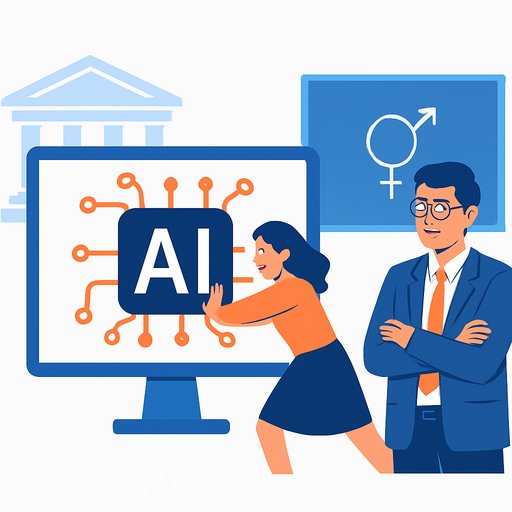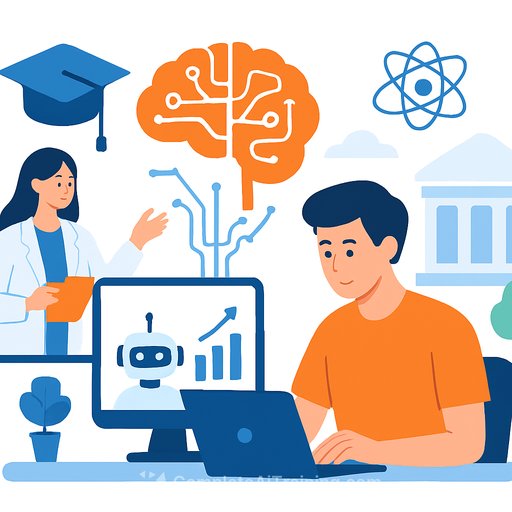State of the School 2025: Flourishing in the Age of AI
In his annual address on September 18 at the Dr. Allen and Charlotte Ginsburg Human-Centered Computation Hall, Dean Yannis C. Yortsos outlined how USC Viterbi is advancing, where it's investing, and what AI means for engineering education. The message was clear: build strong fundamentals, teach AI with purpose, and keep human values at the center.
By the Numbers: A Strong Incoming Class
- First-year students hail from 35 states and 20 countries.
- Acceptance rate: 9.2%.
- One-third entered with a perfect 4.0 unweighted GPA.
- For the seventh straight year, the entering class reached or neared gender balance.
Faculty Growth and Recognition
USC Viterbi hired eight tenure-track assistant professors, two tenured associate professors from other institutions, and one tenured full professor from a top peer institution. Interest was intense, with a record 2,357 applicants for these roles.
- Andrea Hodge named ASM Fellow.
- SK Gupta received the SME Eli Whitney Productivity Award and the ASME William T. Ennor Manufacturing Technology Award.
- Azad Madni earned the SWE Rodney D. Chipp Memorial Award.
- Stacey Finley received the BMES Mid-Career Award.
- Maja Matarić received the ACM Eugene L. Lawler Award for Humanitarian Computing and the MassRobotics Medal, and was inducted into the National Academy of Engineering.
Computing at the Center
The School of Advanced Computing (USC's 23rd school) marked its one-year anniversary. Its mission: connect physical, chemical, biological, and social phenomena with advanced computing-especially AI-to address grand societal challenges.
Engineering in Society: Ethics, Communication, Global Context
The Engineering in Society Program expanded with new courses and experiences that build human skills alongside technical depth. Highlights include "EIS 103: Information Literacy," "EIS 370: Ethical Issues in Artificial Intelligence," and study-abroad courses in Germany, Japan, and Australia.
Student Achievement: Rocket Propulsion Lab
USC Rocket Propulsion Lab celebrated 20 years. In 2019, Traveler IV became the first student-built rocket to cross the Kármán line. In October 2024, Aftershock II reached 470,000 feet-the first amateur-built rocket to do so.
Departments on the Rise
The Daniel J. Epstein Department of Industrial and Systems Engineering is ranked top 10 nationally. The Mork Family Department of Chemical Engineering and Materials Science marked the 20th anniversary of its naming after unifying chemical engineering, materials science, and petroleum engineering.
Endowed Chair in Construction Management
With a naming gift from alumnus Jonathan Emami, the program led for 33 years by Hank Koffman will add faculty, students, and new offerings. The Henry M. Koffman Endowed Chair in Construction Management honors Koffman's lasting impact on the program.
The AI Era: Who Thrives
Dean Yortsos outlined three attributes engineers need to flourish in what some call "The Age of Intelligence":
- Deep domain expertise.
- Deep understanding of AI technologies.
- Outstanding character-purpose, ethics, and trustworthiness.
Graduates should seize AI's opportunities without "compromising the well-being of society and humanity." As he put it, AI must be "honest, harmless and helpful."
Constant Goals, Faster Tech
Engineering's purpose remains steady across four pillars-the "Maslow hierarchy for humanity":
- Advancing sustainable prosperity
- Improving health
- Ensuring security
- Enriching life
At the same time, advanced computing and AI are accelerating. Yortsos framed this as a "double helix" of technology and society: enduring human needs intertwined with swiftly changing tools. People provide the trust, values, and oversight-the human in the loop-that keep AI "honest, helpful and harmless."
Concrete Moves at USC Viterbi
- A new B.S. in Artificial Intelligence, the first undergraduate AI program of its kind on the West Coast.
- A new M.S. in Aerospace and Mechanical Engineering with an emphasis on AI and machine learning.
- Leadership in the USC-wide Center for Generative AI and Society.
- AI fundamentals to be embedded across all engineering courses.
For Educators: Practical Next Steps
- Integrate AI literacy in every course: data basics, model limits, evaluation, and responsible use.
- Pair technical content with ethics, communication, and policy labs-students should practice defensible decision-making with AI.
- Adopt project-based learning where AI assists domain tasks (design, modeling, analysis), not as a gimmick but as a tool with clear constraints.
- Invest in faculty development and shared playbooks; curate reproducible templates and model cards for classroom use.
- Align assessments to reward verification, critique, and interpretability-skills that differentiate thoughtful engineers.
- For professional upskilling, see curated AI courses by job function to support faculty and staff development.
- Anchor ethics work in widely recognized standards such as ABET's criteria and guidance.
Published on September 24, 2025
Last updated on September 24, 2025
Your membership also unlocks:






